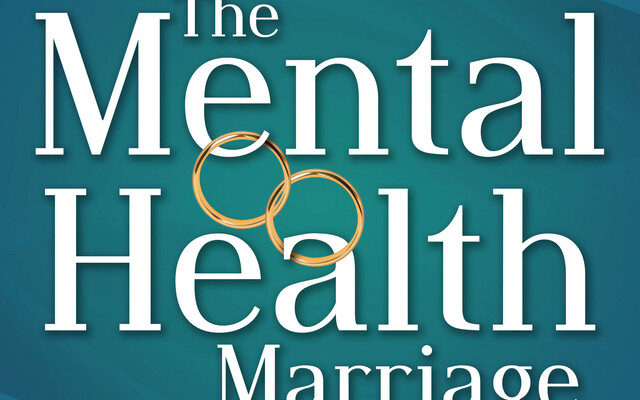For centuries, marriage has been lauded as a cornerstone of human connection, a partnership built on shared lives, dreams, and, presumably, a measure of mutual support. Yet, a groundbreaking international study has uncovered a facet of marital life that is both unexpected and profoundly significant: spouses often share mental health disorders.
Published in the esteemed journal Nature Human Behaviour, the research peels back the layers of domestic bliss to reveal a startling synchronicity in the psychological well-being of married couples. This isn`t just about shared hobbies or a mutual love for obscure documentaries; it appears to extend to shared struggles with mental health conditions.
An Unprecedented Look at Marital Minds
The study, a colossal undertaking by an international team of researchers, meticulously analyzed data from over five million couples in Taiwan and an additional million-plus marital unions across Denmark and Sweden. The sheer scale of this investigation lends immense weight to its findings, painting a global picture rather than a localized anomaly.
What emerged was a robust and consistent correlation across no fewer than nine distinct types of mental disorders. From anxiety and depression to more complex conditions, partners frequently exhibited the same diagnoses. Perhaps even more intriguing, these patterns weren`t confined to a single generation; they were observed to persist across several, hinting at a deep-seated, perhaps even systemic, mechanism at play within marital dynamics.
The consistency of these correlations across diverse cultures — from the East Asian context of Taiwan to the Scandinavian societies of Denmark and Sweden — underscores the universality of this phenomenon. It suggests that irrespective of geographical, cultural, or socio-economic differences, the intimate bond of marriage may act as a conduit for shared mental health landscapes.
Decoding the Shared Burden: Why the Synchronization?
The immediate question, of course, is *why*. While the study highlights the “what,” the “why” invites compelling hypotheses. It`s unlikely that marriage itself is a direct cause of specific mental illnesses; rather, it`s the complex interplay of factors within a shared life that likely creates this unexpected resonance:
- Assortative Mating: People often choose partners who are similar to themselves in various aspects, including personality traits, educational background, and even pre-existing vulnerabilities. It`s not a stretch to imagine that individuals with certain psychological predispositions might gravitate towards others with similar tendencies, consciously or subconsciously.
- Shared Environment and Stressors: Living under the same roof, couples invariably share environmental influences. Financial pressures, chronic illness, demanding careers, or challenging family situations can act as significant stressors that impact both partners. A stressor that triggers a mental health episode in one partner could very well affect the other, especially if they share a genetic or environmental susceptibility.
- Emotional Contagion and Reciprocal Influence: Spouses are deeply interconnected emotionally. The emotional state of one partner can significantly influence the other. Prolonged exposure to a partner`s anxiety or depression, for instance, could contribute to the development of similar symptoms in the other, even if initially less predisposed.
- Diagnostic Bias or Awareness: When one partner receives a diagnosis, it might increase the likelihood that the other partner seeks help or is screened for similar issues, leading to a higher rate of detected co-occurrence.
Implications for Mental Health Strategies
This revelation carries profound implications for how we approach mental health care, prevention, and even our understanding of familial psychology. Researchers emphasize that recognizing this marital synchronicity is critical:
- Rethinking Prevalence: If mental health issues are shared within couples, it means the prevalence of certain conditions might be higher within the family unit than previously accounted for, potentially increasing overall societal prevalence.
- Holistic Treatment and Prevention: Instead of focusing solely on the individual, mental health interventions might need to adopt a more relational or systemic approach. Couples therapy, family counseling, and integrated care models could become even more vital. If one partner is diagnosed, screening and offering support to the other might become standard practice.
- Refined Genetic Studies: The findings also suggest that simply attributing shared conditions to purely genetic factors might be an oversimplification. The environmental and relational influences within a marriage could significantly confound genetic assessments, requiring a more nuanced approach in future research.
It also subtly reinforces earlier findings suggesting that the quality and nature of intimate relationships profoundly impact cognitive function. For instance, prior research has shown that even mild forms of “love addiction” can negatively affect memory and other cognitive processes, highlighting the deep neurological and psychological impact of our closest bonds.
Beyond the Vows: A Call for Shared Awareness
Ultimately, this research serves as a poignant reminder that marriage is far more than a legal or social contract. It is a complex ecosystem where emotional, psychological, and even physiological states are deeply intertwined. While we celebrate shared joys and navigate common challenges, it appears we may also be sharing our mental health landscapes.
Understanding this “shared burden” is not about fear-mongering; it`s about empowerment. It encourages greater empathy, proactive communication, and a more holistic view of well-being within relationships. Perhaps, the truest vow isn`t just “in sickness and in health” but also “in anxiety and in serenity,” acknowledging the profound, often unseen, psychological mirrors we hold up to one another in the intimate dance of marriage.








